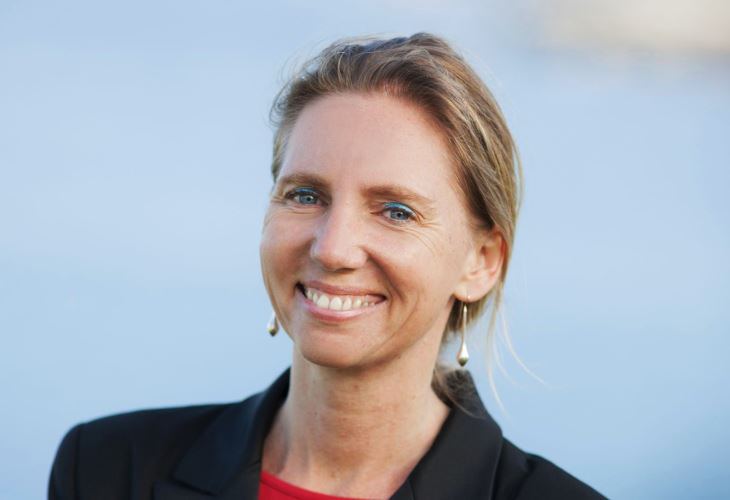PECB’s network – Distributors, Partners, Auditors, Trainers are at the heart of our global presence. Highly experienced professionals, after years of working in a specific field and being trained and examined accordingly, receive the PECB Master Credential, which among other requirements, entails being a PECB Lead Implementer and a Lead Auditor in that specific field. This time we had a conversation with one of our ISO 22301 Masters, Ms Rinske Geerlings, who is the founder of Business As Usual in Australia.

Even though she “runs the show” at Business As Usual, she sees the partnership with PECB and its excellent staff as very important for the success of her business. PECB has helped her business to innovate and to feel supported in that process. She has been partnering with PECB since 2013, and she says she “…finds PECB to be innovative, flexible and open to suggestions for improvement.” Moreover, the global presence of PECB matches her company mission and its global projects, because while she is based in Australia, she operates and holds training courses internationally
“PECB’s global conferences and events have been a great enhancement to the relationship and great fun!” Rinske commented. She facilitated her interactive “Cyber Attack Simulation Game” at the PECB Insights Conferences in Montreal (Canada) in 2017 and Paris (France) in 2018. She also hosted the “Internet of Things (IoT) and Security” panel at the Paris conference.
Always on a busy schedule and working intensively, Rinske has her creative, expressive space, where apart from her professional passions she finds inspiration and that extra push. As such, she is band manager and lead singer in the Latin/Jazz band SophieG.
When asked about her relationship with music and how the two worlds of Business Continuity and consultancy come together, she explains:
“The left side of my brain is in constant overload with so many interesting work-related issues to delve into every day. If I didn’t switch on the right side of my brain sufficiently (in my case by singing in my band), I think I would go crazy! Music is one of the few things that are completely able to move me ‘into the moment’ rather than being ‘in my head’ the whole day “
She tells us that she remembers always being quickly bored: “Even when I was four years of age, I recall begging my grandfather for ‘more difficult spelling words‘ and ‘more complex calculations’. After high school, I wanted to delve into a university environment that would challenge me intellectually, and I certainly found one: the University of Technology in Delft in the Netherlands, where I’m originally from.”
During her Master studies in Industrial Design Engineering, she quickly found out that she is a generalist, rather than a technological specialist. Even in the highly technical environment of the university, she found ways to inject the curriculum with broader topics, such as Marketing and Business Management.
In her final year at university, she decided to do an overseas thesis project for 9 months in Sydney and that’s when she fell in love with Australia. She explains: “Quickly after receiving my honours degree, I rushed back to the Land of Oz for a career in consultancy, namely, IT Management. I further expanded my accreditations there with ITIL, COBIT and the ISO standards ISO 22301, ISO 31000, ISO 28000, ISO/IEC 27001 and ISO/IEC 27032. Especially after starting my own company ‘Business As Usual’ these certifications became essential.”
Rinske first came in contact with standards and management frameworks when she worked as an IT support analyst as part of her Engineering studies. “ITIL, PRINCE2 and COBIT were brand new concepts to most organizations back then, and luckily I was trained in these IT management methodologies by my employer at the time, to deliver better-structured project deliverables.” – she said. Rinske comments on how this first experience with structured frameworks was the stepping stone to her later adoption of ISO standards – initially the ISO 22301 standard for Business Continuity Management.
The connection Rinske has with the world of standards and consultancy is one that always seeks to expand the texture of these environments and always add more depth of thought as well as of view. “ISO is the way of the future in my view, particularly for those who work in an international environment and/or serve multinational organizations. The ISO standards all speak the same language.”
Part of our corporate culture at PECB is giving the right importance to what many call “mistakes”, but that we organically embody in our day-to-day work (and consider) as “lessons”. We asked Rinske on this matter, and even on this subject she inextricably reflects the width of her view:
“Probably the biggest mistake I’ve made professionally has been not trusting my instincts in a specific business challenge. Coming originally from the corporate world 13 years ago, before becoming an entrepreneur, I used to have a large sounding board of colleagues/peers, managers and staff – a big ‘safety net’”.
Now she is proud that she has learned to trust her intuition and be fully independent when she needs to be.
Further, when asked about what is important to her regarding values and success, Rinske gives a powerful message: “Firstly, the understanding that, no matter what you do or don’t do, all paths have pros and cons. Regret, for that reason, is a waste of time and energy. Another major pitfall is for people to let the opinions from the outside world have more control and power than their own voice from the inside. If you feel a strong urge and calling, follow it! No matter how crazy and scary it may be. And never – EVER – give up on your dream.”Rinske feels that her position as a European female entrepreneur is quite unusual in Australia and other non-European regions, but this gives her a competitive edge. “Apart from doing a fantastic job and committing to strong values and ethics, being from a different culture makes you stand out even more, and it can make people remember you.” – she adds.

Rinske feels that her position as a European female entrepreneur is quite unusual in Australia and other non-European regions, but this gives her a competitive edge. “Apart from doing a fantastic job and committing to strong values and ethics, being from a different culture makes you stand out even more, and it can make people remember you.” – she adds.
HOW HAS THE ISO 22301 PECB MASTER QUALIFICATION SUPPORTED RINSKE’S CAREER?
Rinske believes that her experience of more than 20 years of planning for continuity events and being actively involved in the industry as a speaker, facilitator, consultant and trainer has helped her to get genuinely connected to the ISO 22301 standard.
“I welcomed it with open arms, as I believe any ‘local’ (i.e., country-specific) BCM standards have certain limitations, particularly when aligning them with interfacing international ones (e.g., ISO 31000, ISO/IEC 27001, ISO 28000).”
She gives us some hints on how today’s Business Continuity risks should be tackled in a nutshell:
“With a ‘cool head’ and a ‘warm heart’! I often come across Business Continuity Plans that assume a loss of building/access or a loss of IT-type scenario. And then a number of mathematically driven Business Impact Analysis (BIA) and Risk Assessment documents. Hardly ever do I see in these plans the proper ‘loss of staff availability’ scenarios being addressed.”
Further she continues: “Staff is in fact the most important ‘ingredient’ to survive any disruptive event. Addressing their needs and limitations contributes to ‘doing the right thing’ as an employer, but also to maintaining the organization’s ‘face’ (i.e., its reputation and ‘brand’). I have written a number of articles on this topic, which can be found on my LinkedIn profile (e.g., ‘1 most common blind spot in BCPs’).”









